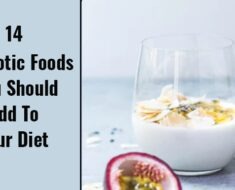
Calories provide our bodies with the energy it needs to function properly to keep us alive, so the idea of eating foods that contain zero calories sounds a little bit like an oxymoron. Zero-calorie foods don’t actually contain zero calories and they do not burn more calories than other foods.
They are simply whole foods that are naturally low in calories.
The theory behind zero calorie foods is that your body will use more energy (calories) digesting them than the foods themselves actually contain through a process called thermogenesis.
This is why zero calorie foods are so beneficial for weight loss.
21 Zero Calorie Foods to Start Eating for Weight Loss
One thing you’ll notice all of these zero calorie foods have in common is that they’re whole foods.
This means they provide tons of volume and take longer to digest since they contain dietary fiber, a type of carbohydrate the body can’t digest.
As a result, you’re left feeling full longer while eating fewer calories.
That’s the power of whole foods!
So if you’re trying to consume less calories and lose weight, it’s a good idea to add these zero calorie foods to your diet.

1. Apples
You know what they say: “An apple a day keeps the doctor away.”
Apples are one of the most beloved fruits due to their delicious nature and abundance of health benefits.
They’re rich in fiber, antioxidants, polyphenols, and micronutrients to keep your body healthy.
One cup (125 grams) of sliced apple contains 65 calories (1).
2. Arugula
Unbeknownst to many, arugula is actually part of the brassicas (cruciferous) family of vegetables, known for their disease-fighting properties.
Other cruciferous vegetables include broccoli, cabbage, cauliflower, kale, brussels sprouts, collard greens, and more.
Arugula in particular is high in fiber, antioxidants, chlorophyll, and phytochemicals such as glucosinolates.
Since arugula is 90% water, one cup (20 grams) of this leafy green is only 5 calories (2).
By the time your body is done digesting this zero calorie food, you will have burned more calories than you consumed eating it.
But, your body will have used the macro and micronutrients to help keep you in tip top shape.
3. Asparagus
Did you know that asparagus grows straight out of the ground like hairs on a head?
Asparagus is a flowering vegetable from the lily family, as are garlic, leeks, and onions, and can be found in white, green, and purple varieties.
White and green asparagus actually come from the same plant. Photosynthesis turns the vegetable green but when it gets covered in dirt, photosynthesis cannot occur, resulting in white asparagus.
This vegetable is full of vital minerals and nutrients like vitamins A, C, E, K, and B6, as well as calcium, copper, fiber, iron, and folate.
Asparagus contains more folate than any other vegetable, with 17% of the recommended daily value (RDV) in one cup (134 grams) and only 27 calories (3).
4. Berries
Berries are among the healthiest foods on earth and come in many different delicious varieties.
These superfoods are loaded with antioxidants, vitamins, minerals, and fiber and have been linked to lower cholesterol, improved blood sugar and insulin levels, and healthy, glowing skin.
Related: What Are Superfoods? Top 15 Superfoods to Add to Your Diet
The calorie content in one cup of berries:
- Blackberries: 62 calories in 144 grams (4)
- Blueberries: 84 calories in 148 grams (5)
- Raspberries: 64 calories in 123 grams (6)
- Strawberries: 49 calories in 152 grams (7)
5. Bone Broth
Don’t let this nutritious, healing food confuse you for stock.
Bone broth is made from animal bones – usually cattle, chicken, or fish – and vegetables, herbs, and spices that have been simmered for 10-20+ hours, whereas stock is only cooked for a few hours.
The long, slow simmering process for making bone broth helps extract more gelatin, collagen, and protein (amino acids), which all have incredible healing properties.
Substituting bone broth for stock is an easy swap that will lend itself very well to your health.
You can sip on bone broth, use it in place of stock in soups and stews, add it to your rice or quinoa as it cooks, or anywhere else you think it would taste delicious.
This 8oz carton of organic bone broth is only 45 calories and has 9 grams of protein!
6. Broccoli
This cruciferous vegetable is packing.
Just one cup (91 grams) contains 135% of your daily vitamin C requirements, 116% of your daily vitamin K needs, as well as hearty amounts of folate, manganese, and potassium.
And it only contains 31 calories per cup (8).
7. Brussels Sprouts
Brussels sprouts are like little baby cabbages that grow on stalks.
They’re rich in vitamins A, C, and K, as well as fiber, folate, and manganese.
One cup (88 grams) of this hearty vegetable is just 38 calories (9).
8. Cabbage
Cabbage somewhat resembles a head of iceberg lettuce and has either green or purple leaves.
It’s an amazing source of vitamins C and K, fiber, folate, and choline – an essential nutrient that must be obtained through diet.
One cup (89 grams) of chopped cabbage contains 22 calories, making it a great way to add volume to your meals with little added calories (10).
This zero calorie food can easily be added to your diet through salads, slaws, sauerkraut, stir fry, and even stuffed cabbage soup!
9. Carrots

Chances are, you’ve heard carrots are important for good eyesight.
This is because they’re rich in beta-carotene, an organic red-orange pigment our bodies convert to vitamin A, which are both crucial for eye health.
In fact, one cup (128 grams) of carrots contains 428% of the RDV for vitamin A and just 53 calories (11).
Carrots are also a particularly good source of antioxidants, fiber, folate, potassium, choline, and vitamins C and K.
Carrots are one of those vegetables you can add to just about any dish for more sustenance without adding many calories.
10. Cauliflower
Cauliflower is commonly used as a low carb, low calorie substitute for grains and higher carb vegetables.
It’s packed full of nutritious goodness, such as antioxidants, vitamins C and K, fiber, folate, choline, and potassium.
One cup (100 grams) contains just 25 calories (12).
11. Celery
Celery is best known for it’s high water content, as it’s made up of 95% water.
This, plus the loads of insoluble fiber it contains, means celery is very low in calories, with one cup (101 grams) containing only 16 calories (13).
Celery is also a great source of vitamin K and folate.
12. Clementines
Mini versions of anything are always cute, and since clementines resemble mini oranges, it makes sense they’re often called Cuties.
Citrus fruits are known for their rich vitamin C content, with clementines containing 60% of the RDV per fruit.
One fruit (74 grams) contains 35 calories (14).
13. Cucumbers
Comprised of 96% water, cucumbers are another zero calorie food to keep you hydrated.
The high vitamin K, fiber, and antioxidant properties are some of the great health benefits cucumbers have to offer, with only 16 calories per cup (104 grams) (15).
14. Grapefruit
The grapefruit is a cross between a pomelo and an orange that grow in clusters similar to grapes.
They can range from acidic and bitter to sweet and sugary.
Grapefruits contain vitamins A and C, potassium, and fiber, support clear, healthy skin, and can lower the risk of disease.
Half a grapefruit (123 grams) contains 52 calories (16).
15. Kale
Kale is one of the richest sources of vitamin K in the world.
One cup (67 grams) packs a whopping 684% RDV of vitamin K, 206% RDV of vitamin A, and 134% RDV of vitamin C with only 34 calories (17).
Kale is also a great source of manganese, calcium, potassium, and copper that makes a great addition to salads, smoothies, and other wholesome dishes.
16. Lemons and Limes

Lemons and limes are most commonly used for their juice in drinks, dressings, and marinades.
They’re rich in vitamin C, folate, and potassium and their antioxidants properties may act as a defense against disease.
One fluid ounce (30 grams) of lemon or lime juice contains 8 calories (18, 19).
Lemon juice and green tea are a great combination, as the vitamin C from the lemon allows your body to absorb the antioxidants in the tea up to 6x more than if you drank it alone.
17. Peppers
Whether you like jalapeños, bell peppers, lemon peppers, or the like, peppers are a healthy zero calorie food to add to your diet.
Bell peppers in particular are extremely high in vitamins A, C, and B6, as well as folate, potassium, and fiber.
One cup (149 grams) of bell pepper is only 46 calories (20).
18. Spinach
Spinach is a tender, leafy green that adds tons of volume to your meals without all the calories.
It’s packed with vitamins A, C, and K, fiber, folate, and manganese to help keep you healthy.
Eating one cup (30 grams) of spinach is only 7 calories (21).
19. Sugar Snap Peas
Sugar snap peas are, as the name suggests, slightly sweet and have a bit of a crunch if eaten whole, pods and all.
They contain the 100% RDV of vitamin C, as well as high levels of vitamins A and K, thiamin, folate, fiber, iron, and manganese.
With just 41 calories per cup (98 grams), sugar snap peas are a healthy, low calorie snack to munch on (22).
20. Watermelon
Watermelon contains – as you guessed it – a large amount of water. It’s made up of about 92% of it.
Aside from being an extremely refreshing and hydrating fruit, it also contains healthy doses of vitamins A and C, and trace amounts of almost every other vitamin and mineral.
One cup (154 grams) of delicious watermelon contains 46 calories (23).
21. Zucchini
Last, but certainly not least, is zucchini.
This zero calorie food is often used to make zoodles to replace higher-carb pasta alternatives and is a great addition to many other dishes.
Zucchini contains micronutrients such as vitamins C and B6, riboflavin, potassium, and manganese all with little calories.
One cup (124 grams) is just 20 calories, making it the perfect addition – or substitution – to your meals (24).
Eat Up!
Whole foods are very nutritious and contain very little calories, meaning you can eat more, feel full, and still lose weight.
Don’t worry, there are plenty more low calorie foods out there full of nutritiously delicious health benefits.
These 21 zero calorie foods are just a guide to the types of foods you should be adding to your diet.
Once you start eating these delicious zero calorie foods, you’ll be the epitome of #health.





